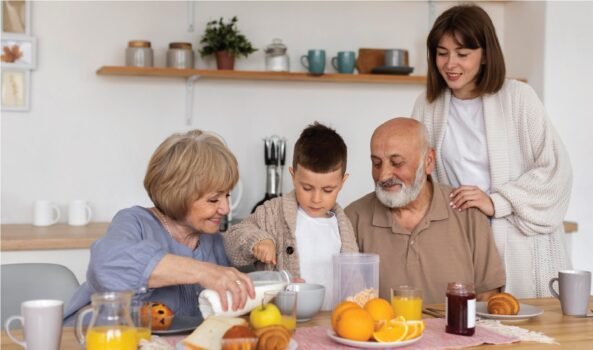
The 1st of October every year marks The International Day of Older Persons. This day dates back to 1990 and has its origins in the United Nations General Assembly resolution that was adopted in that year. Subsequently, it was first observed in the year 1991, with the aim of raising an awareness of the challenges and issues that are faced by older persons all across the world.
The United Nations has declared the present decade from 2021-2030 ad the Decade of Healthy Ageing. The promotion and protection of the rights of older individuals coupled with mobilizing advocates to champion their cause and their rights is a prime focus of this platform. With elder abuse on the rise, living with dignity assumes paramount importance for the elderly in their twilight years. The other aspect of the celebration is to celebrate the contributions made by them. The natural process of ageing is rife with challenges. There is an increase in the number of older people in the population of every country with ageing being a natural process.
The challenges presented by this demographic shift emerges in issues related to employment, pension schemes, social services amongst many others. October 1st this year marked the 33rd United Nations International Day for Older persons and the theme was “Fulfilling the Promises of the Universal Declaration of Human Rights for Older Persons: Across Generations.” This emphasized their rights and the need to tackle age-based discrimination. The importance of equity and reciprocity between generations was highlighted and an aligning with the Sustainable Development Goals was brought about.

An allocation of a special day and the realization of the needs of the elderly is a task half done, so what should be kept in mind while taking dedicated steps to ensure their well-being and good health. A few of them could be – diverse bodies like the NGO’s, corporates, Governments need to work harmoniously and consciously with a steadfast approach to ensure that the objectives as laid out and envisioned are met. The procedures for sanctioning and disbursing old age pensions should be simplified and made transparent to ensure its efficacy.
The monitoring and evaluation mechanism of programs and schemes that benefit older persons also assumes greater importance. Government officials and local body representatives should also be sensitized to the needs of the elderly. Other issues like medical support, discounts on rail fares, expediting court cases, etc. also should be keyed in the welfare schemes. A three-pronged strategy to alleviate them from poverty, prejudice and health problems will go a long way to accord them a life of dignity and well-being. The spirit of inclusion must prevail in all the activities centering around their well-being.
It is an acknowledged fact that seniors or older persons if motivated will remain in a better state of mind and body, so let us look at some tips that can motivate them. A few key ones could be:
- Set a routine or agenda for them to follow
- Set goals and track their progress
- Provide them encouragement to socialize with family and friends
- Motivate them to engage in some form of daily physical exercise activity like yoga, walking and so on
- They must eat healthy and nutritious food
- They must cultivate a hobby and pursue it dedicatedly
- Apart from these there are many other motivators for them to lead a well-balanced life blending a fit mind and body.
The United Nations has encouraged all countries to incorporate the following in their national policies related to the elderly –
1) Independence – which should promote access of the elderly to adequate shelter, food, clothing and healthcare, which can be achieved through income, family or community support and self-help. Income generation opportunities for them to earn should also be created.
2) Participation – their involvement in policies that govern their well-being should be actioned. They should also be included in societal functioning.
3) Care – An access to good health care so that they can maintain optimum levels of health and fitness should also be devised in the national policies. Their physical, emotional and mental well-being should also be kept in mind.
4) Self Fulfilment – They should be provided with opportunities of realizing their potential to the fullest. They should have opportunities to spiritual, recreational, educational and cultural resources available in the society.
5) Dignity – A life of dignity where the elderly are free from mental and physical abuse and can live a life of dignity without any form of exploitation is also a crucial aspect that must be looked into. However, it goes without saying that the success of any endeavour is closely related to joint efforts in a single focused direction. Apart from the bodies that are working jointly towards this objective, the elders too should be aware of their rights and report any acts of aggression or violence against them to the concerned authorities. Their awareness of the legal provisions too must be updated at regular intervals.
Awareness backed by concentrated efforts by all concerned will surely ensure that every year the 1st Of October – International Day of Older Per sons assumes the significance that it truly deserves!



















